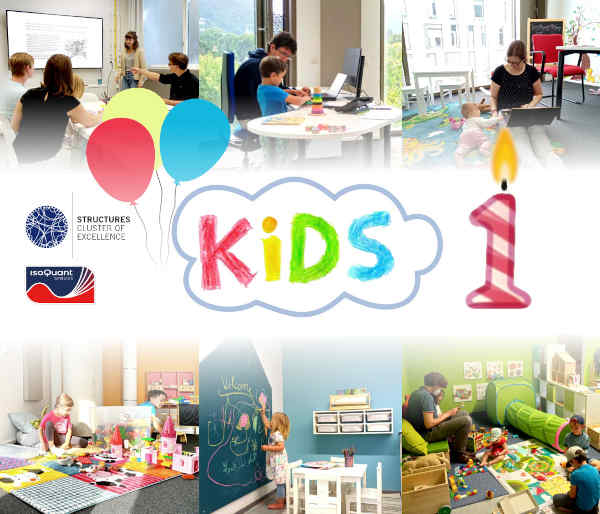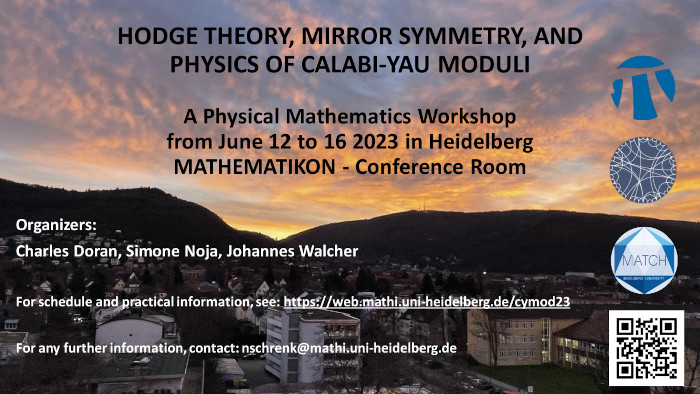Newsroom
Stay informed with our latest news and announcements on this page. For more in-depth content, we also encourage visitors to explore our bimonthly STRUCTURES Newsletter magazine, which features a variety of articles, interviews with members, and background information on our latest research and activities.
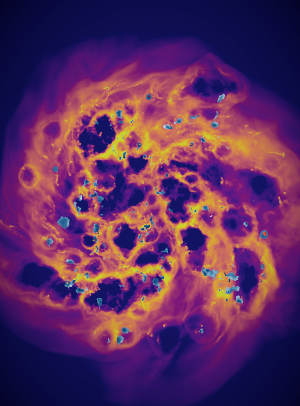
We are happy to announce the Arepo Development Workshop for ISM simulations, which takes place from September 11 to 15, 2023 in Manchester, United Kingdom, and is supported by the STRUCTURES Cluster of Excellence.
The goal of this highly interactive workshop is to bring together people who use and develop Arepo for ISM studies, allowing them to share their knowledge on improvements and modules they have introduced to the code. The code framework Arepo is a widely used tool for simulations in the astronomical community, whether it be for cosmological, galaxy or cloud scale simulations. In the field of ISM physics, many researchers use it as a basis for their models. Within STRUCTURES, the code is used especially in the context of comprehensive project CP1, which combines multi-scale numerical simulations with data analysis techniques and functional methods to answer the key question: Why is so much of nature structured rather than diffuse? In order to keep up with research of ever-increasing complexity, new and more elaborate physics has been introduced in the code in recent years.
Further information:
Workshop webpage
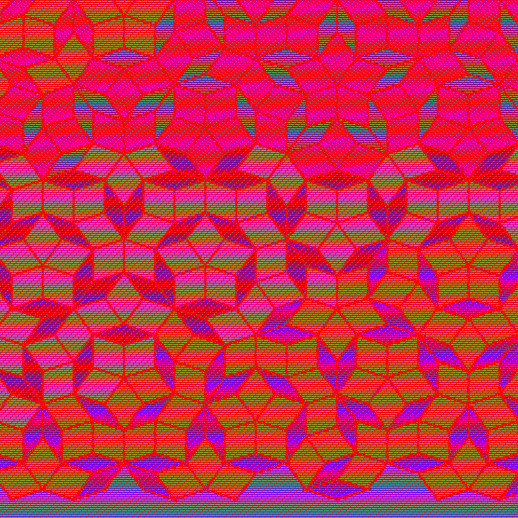
We are happy to announce the HEGL community seminar talk on Monday, June 26, at 2:15 pm, Mathematikon (Seminarraum C), in which Philip Engel will be talking on "Weaving Quasicrystals".
Abstract: I will begin by talking about joint mathematical work with Peter Smillie on tilings, quasicrystals, and moduli spaces of higher differentials. We will review the beautiful constructions of N. G. de Bruijn, who classified the Penrose tilings of the plane. Then, we will discuss how to generalize some parts of this work to build tilings of closed, flat surfaces.
For the second half of the talk, I will describe a joint art project with fiber artist Victoria Manganiello, on visualizing quasicrystals and higher dimensions. How are patterns made, converted into a format suitable for weaving, and then actually woven?
Further dates and information:
HEGL Community Seminar webpage

We are delighted to announce the special “Math colloquium” in honour of our external member and former STRUCTURES speaker Anna Wienhard, organized by the Heidelberg Institute for Theoretical Studies (HITS). The colloquium, which will take place on July 8, 11 am at Studio Villa Bosch, will be a special event in honour of Anna Wienhard, who took up her new position as Director of the Max Planck Institute for Mathematics in the Sciences in November 2022.
The distinguished speakers at the colloquium will be:
- Steve Trettel (University of San Francisco): “Geometry from the Inside” (Abstract)
- Richard Schwartz (Brown University): “Divide and Conquer: 5 Point Energy Minimization” (Abstract)
After the talks and discussion, Anna Wienhard will be awarded HITS Fellow by HITS Scientific Director Tilmann Gneiting.
We are happy to announce the Topological Data Analysis (TDA) seminar on Thursday, June 22, 11:15 am at Mathematikon (room 00.200), in which Tobias Buck, research group leader at IWR and ZAH, will be talking about “Enhancing computational astrophysics with interpretable machine learning”.
The seminar is organized within the STRUCTURES Exploratory Project Mathematics and Data, a platform across the fields of the natural sciences and mathematics to discuss applications and foundations of topological data analysis and beyond. TDA provides versatile tools to uncover potentially hidden topological structures in data. Researches who use TDA in statistical contexts are regularly surprised by its vast sensitivity to non-local correlations. The goal of the TDA seminar is to bring together people from various backgrounds, with an emphasis on synergies with Machine Learning. Topics range from applications on real world problems to the abstract mathematical foundations of the subject.
Please find more information and the preliminary schedule for upcoming talks on the seminar website.
On Friday, June 16, 2023, 11:15, Alexander Schuckert will give a talk on the strongly drive-dressed Fermi polaron. Fermi polarons are quasiparticles formed by impurities interacting with an atomic Fermi sea. Quasiparticles, crucial to understanding quantum systems, offer exciting opportunities for scientific and technological advancements through manipulation using external fields. Alexander Schuckert will discuss the challenge of manipulating quasiparticles with external fields and present new methods based on precise and fast radio-frequency control of ultracold atoms. This research holds promise for illuminating the properties of strongly driven matter and highlights the potential of ultracold atoms in such investigations. Don't miss this captivating talk that promises to shed light on cutting-edge research in the field.
The talk will take place at Philosophenweg 12, Room 105.
We are delighted to announce that the parent-child offices “KIDS” of STRUCTURES and SFB1225 ISOQUANT will be celebrating their anniversary. We would like to use this special occasion to celebrate together, to open the buildings for all interested parties and to give parents and children the opportunity to get to know each other and to network.
DATE: Wednesday, 14 June 2023 from 16:00 hrs.
LOCATION: Albert-Überle-Str. 3-5, Room 059
There will be coffee, cake and several small games, painting and craft activities for the children. For a better preparation of the event, we kindly ask you to send us your feedback, indicating the persons participating, by June 5, 2023 at the latest by email to ekb@uni-heidelberg.de. Your families and children are very welcome!
Heidelberg University sees itself as a family-friendly university. With the parent-child offices "KIDS", we contribute to making the compatibility of family and career a self-evident aspect of our university culture. The cooperation initiative of the Cluster of Excellence STRUCTURES and the Collaborative Research Centre 1225 ISOQUANT is intended to offer parents the uncomplicated opportunity to take their children "to the office" in the event of unexpected childcare bottlenecks. In this way, the children can be cared for in a family-friendly environment parallel to their own work. More information on the project can be found at:
We are happy to announce the joint MATCH-PIMS-STRUCTURES workshop in Mathematical Physics, held from June 12 to 16, 2023 at the Mathematikon in Heidelberg.
This workshop, organized by the Mathematical Physics group in the Mathematisches Institut at Heidelberg University, in collaboration with the Algebraic Geometry group at University of Alberta, will focus on the B-model (Hodge theory), the geometry and arithmetic of moduli of Calabi-Yau manifolds, degenerations, related aspects of the A-model (enumerative geometry), and questions of fundamental physics (string theory).
More details, registration information and a list of invited speakers can be found on the workshop's web page:
https://web.mathi.uni-heidelberg.de/cymod23.
